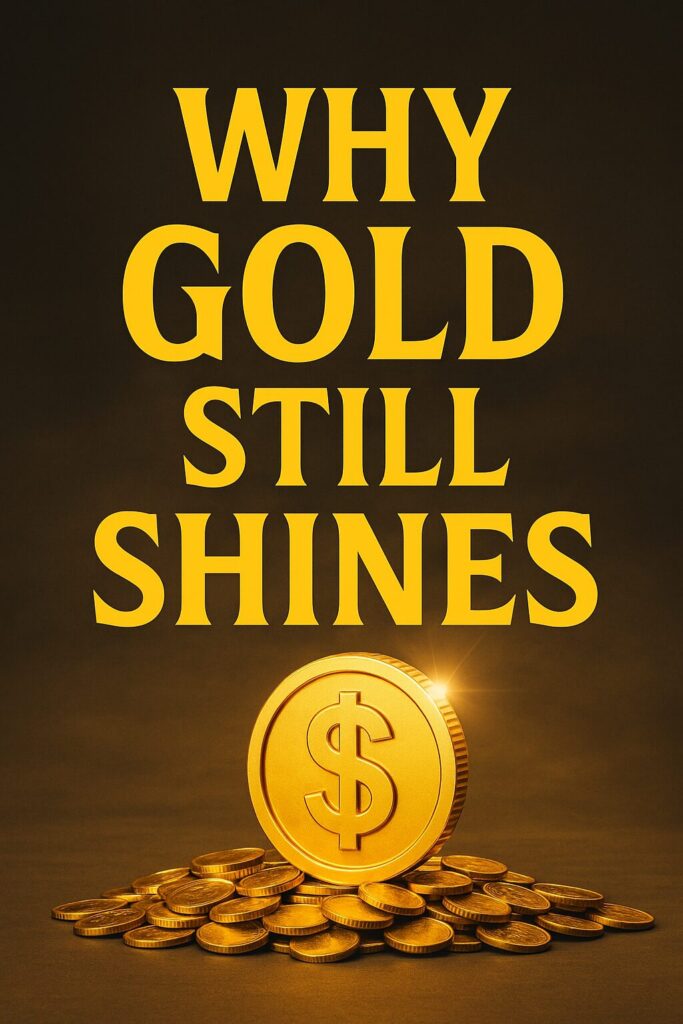
The time-tested asset that protects your purchasing power—especially when markets shake.
In a world filled with economic uncertainty, rising debt, political turmoil, and inflation that never seems to sleep, one investment has stood the test of time for over 5,000 years: gold.
For retirees, protecting what you’ve worked hard to build is priority number one. You don’t have decades to recover from stock market crashes. You want stability. Predictability. Peace of mind.
That’s where gold comes in.
✅ Gold Has Always Been a Store of Value
Unlike paper currency, which governments can print at will, gold is:
- Scarce
- Tangible
- Universally accepted
When the value of the dollar declines or inflation rises, gold has historically maintained or even increased its value. It’s not a promise from a central bank—it’s a physical, global asset that has never gone to zero.
Over centuries, through wars, recessions, and currency collapses, gold has preserved wealth when other assets have crumbled.
✅ How Gold Protects Retirees During Uncertain Times
Here’s what gold can do for a retirement portfolio:
- Hedge Against Inflation
When the cost of living rises, gold often rises too. It helps protect your purchasing power when dollars buy less. - Diversify Your Portfolio
Gold often moves independently from stocks and bonds. That means when markets are falling, gold might hold steady or rise—providing a valuable cushion. - Preserve Capital in Crisis
During financial meltdowns (like 2008 or 2020), gold is seen as a safe haven. Investors flock to it, which helps stabilize its price—or even push it higher. - No Counterparty Risk
Gold is no one’s liability. It’s not tied to the performance of a bank, business, or bond issuer.
For retirees living on a fixed income, these qualities can make gold an anchor during stormy financial weather.
✅ How Much Gold Should You Own?
Financial experts often suggest retirees hold 5% to 10% of their portfolio in gold or precious metals. This small allocation won’t produce income like dividend stocks or bonds, but it can protect the rest of your portfolio when the economy hits a rough patch.
You can invest in gold through:
- Physical gold (coins, bars, stored bullion)
- Gold ETFs (like GLD or IAU)
- Gold mutual funds
- Gold mining stocks (a bit riskier, but potentially higher growth)
For simplicity and liquidity, many retirees prefer gold ETFs, which track the price of gold and can be bought or sold easily through any brokerage account.
✅ Real-Life Example: Why Ron Added Gold to His Retirement Plan
Ron, a 70-year-old retired pilot, lived through several recessions and stock market crashes. After watching inflation creep up and hearing about the national debt ballooning, he decided to allocate 8% of his IRA into a gold ETF.
“Gold doesn’t pay a dividend,” he said, “but it gives me something just as important—confidence. I sleep better knowing that part of my savings is in something real. If the stock market takes a dive, I know I’ve got a hedge.”
In 2022, when the markets fell sharply and inflation spiked, Ron’s gold holdings helped offset some of his losses—and gave him the courage not to panic sell his other investments.
✅ The Bottom Line
Gold may not be flashy. It may not pay income. But for retirees who care about stability, protection, and long-term purchasing power, gold still shines.
In times of crisis, it’s not about getting rich—it’s about staying safe.
Adding a modest amount of gold to your retirement plan won’t make you wealthy overnight, but it could be one of the smartest ways to protect your wealth for the years ahead.
🔒 Disclaimer
This content is provided for informational and educational purposes only. It does not constitute financial, investment, or tax advice. Investing involves risk, including the loss of principal. You should consult a licensed financial advisor before making any investment decisions. The author is not a registered investment professional and does not offer personalized financial advice.